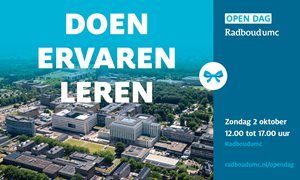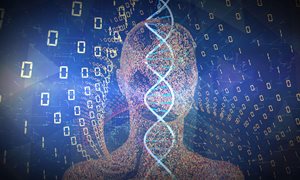 Ten Radboud professors have been appointed to the Academia Europaea, the European association of scientists who are among the best in the world. Academia Europaea boasts roughly two thousand top, European scientists from across the entire range of sciences. Each year, the most engaging international candidates are selected.
Ten Radboud professors have been appointed to the Academia Europaea, the European association of scientists who are among the best in the world. Academia Europaea boasts roughly two thousand top, European scientists from across the entire range of sciences. Each year, the most engaging international candidates are selected.
New members Radboudumc
New members Radboud Universiteit
Harold Bekkering is Professor of Cognitive Psychology and is associated with the Donders Institute of Radboud University. He conducts research into how our brains learn and wrote a book about it. With his group, Action and Neurocognition, he researches the complex processes behind learning and how they work together. Together, they investigate how we respond to each other, how we are able to learn from each other, and, above all, how exactly that all works in the brain. In the process, they are also focusing more and more on the underlying biology and genetics of processes in the brain. The link with clinical practice is growing, too: new research studies are being set up with professionals in the field of autism and Parkinson’s disease. Furthermore, there is a significant impetus focused on computing science: Bekkering and his colleagues want to start modelling processes in the brain with theoreticians and computing scientists.
Wilhelm Huck is professor of physical-organic chemistry at Radboud University Nijmegen. His work focuses on research into the physical-organic, chemical and biological processes that take place in human cells. He applies his knowledge of this complex entity in his search for one of the holy grails in his field: to construct a synthetic cell.
Corjo Jansen is Professor of Rechtsgeschiedenis (history of law) and Burgerlijk Recht (civil law). He is an expert in the field of Roman law, private law history in the 18th, 19th, and 20th centuries, the history of employment law, and law during the Second World War.
He is the chair of the Business & Law Research Centre, where legal science and practice have joined forces. The research pertains to the rules that govern enterprises in modern societies, such as the corporate governance of businesses, company reorganisations during times of financial difficulty, and the supervision of banks. He is also the chair of the Centre for Professional Legal Education (CPO) and the Titus Brandsma Institute in Nijmegen.
John van Opstal is professor of Biophysics. He researches the relations between information received by our brain via the senses and the resulting behaviour. An example is the planning and execution of rapid eye and head movements in response to environmental stimuli, such as sound.
This is an enormous challenge for the brain as many stimuli, e.g. audiovisual, tactile, and motor information, simultaneously compete for its attention. The various systems that process this information are all involved in the planning and performance of movements for orientation of the eyes and head. He researches how exactly this eye-head coordination works with the aid of an ERC Advanced Grant (2016). In the future, this could have a number of applications, such as during the development of prostheses or optimising warning systems.
Karin Roelofs is Professor of Experimental Psychopathology. She researches how fear and fear-driven behaviour operate in the brain. In doing so, she has discovered that people with social anxiety create less of the hormone testosterone. She was one of the first people to examine the brains of psychopaths and she established that these patients exhibit decreased control over emotional actions.
In 2013, she received a Vici grant from the Netherlands Organisation for Scientific Research (NWO) for research into stress in police officers. Their stress responses determine shooting behaviour, but they also act as indicators of post-traumatic stress complaints. Roelofs investigated which neurocognitive processes were driving these responses. In a new project, she is developing a game that provides training for making decisions under stress in a virtual reality environment along with serious game expert Isabela Granic and Floris Klumpers.
-
Want to know more about these subjects? Click on the buttons below for more news.
Related news items

Take a special look inside Radboudumc on 2 October Open Day for young and old
12 September 2022On Saturday 1 and Sunday 2 October, the Radboud university medical center, Radboud University and the HAN are participating in the 'Weekend van de Wetenschap'. At all locations there are fun and interesting programs for young and old.
go to page
The future of laboratory animal research More attention to living conditions of laboratory animals
16 May 2022 On May 9, a meeting took place at the Radboudumc as a result of the launch of the Dutch Transparency Agreement on Animal Testing. The Radboudumc is one of the twenty signatories and has thus committed itself to openly and transparently communicate its vision and policy with regard to animal testing. go to page
Turbo Grants for four medical-technical research projects
19 October 2021 Four TURBO grants were recently awarded to new technical-medical research proposals. The grants are part of the TURBO program, a collaboration between the University of Twente (TechMed Centre) and the Radboudumc. go to page
Nijmegen literally puts Digital Health on the map Flourishing ecosystem gets its own interactive overview
22 July 2021 Digital Health is thriving in the Nijmegen region, where it contributes to better care and health and also creates jobs. To bring developers and end users even closer together, The Economic Board and the Radboudumc are introducing the Interactive Digital Health map. go to page
